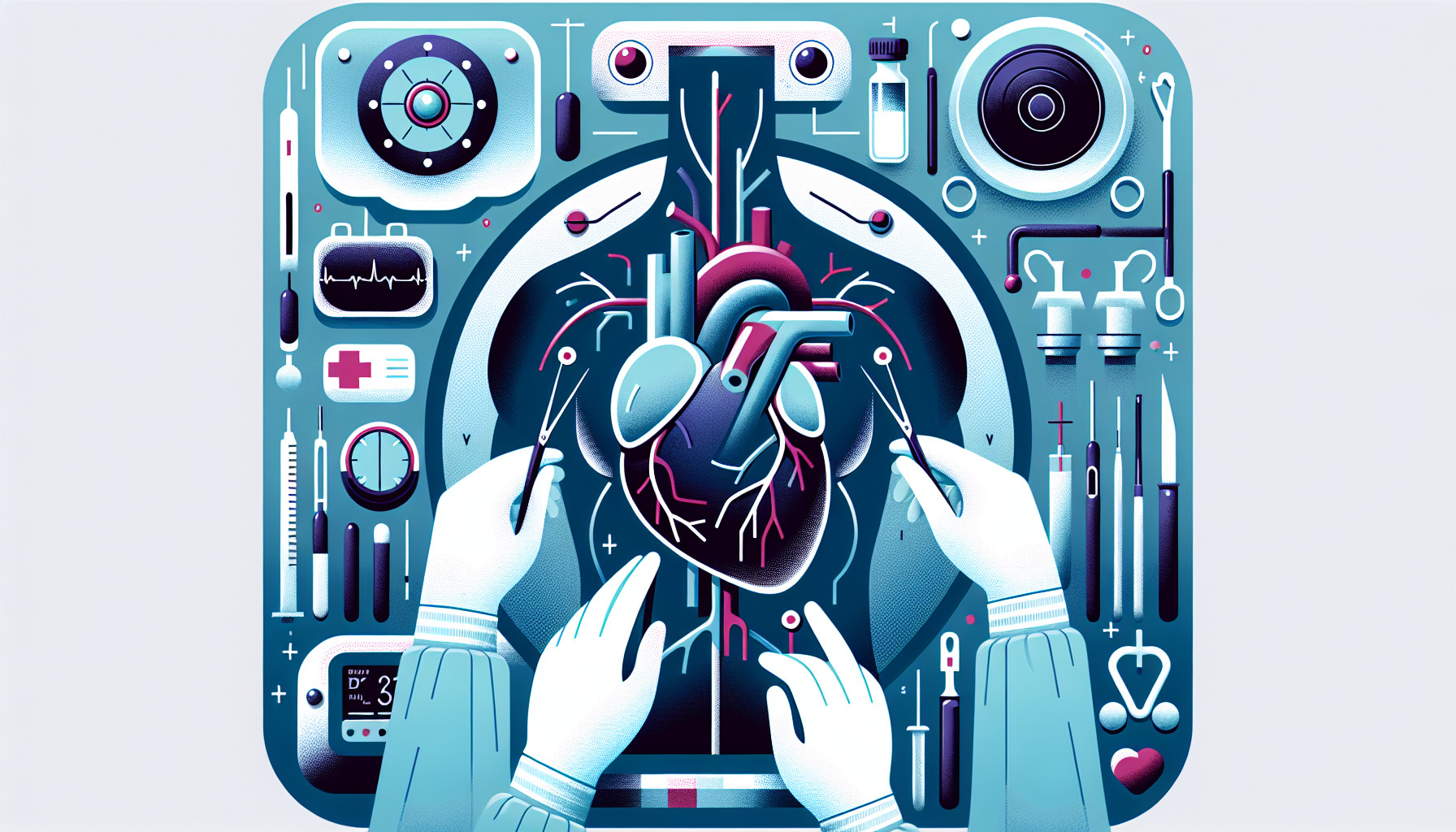Our Summary
Scientists have developed a new method to study why veins used in heart bypass surgeries often fail. They used female Yucatan micro-pigs on a high cholesterol diet to mimic the condition in humans. The pigs underwent a type of surgery similar to human heart bypass operations. Unfortunately, the pigs were very sensitive to heart disturbances, causing two out of six to die during surgery. The scientists found that the choice of anesthetics and careful use of certain drugs were crucial to successful surgery. They also found that a drug called magnesium sulfate helped prevent heart rhythm problems. When the surgeons examined the tissue in the pigs’ bypassed veins, they found that the veins were completely blocked and covered with scar tissue. The study provides a new way to understand why vein grafts fail. This could lead to new treatments to prevent this common complication of heart bypass surgery.
FAQs
- What method have scientists developed to study the failure of veins used in heart bypass surgeries?
- What are the key factors to a successful bypass surgery according to the study?
- How could this study lead to new treatments to prevent the common complication of heart bypass surgery?
Doctor’s Tip
A doctor may advise a patient undergoing coronary artery bypass surgery to discuss with their medical team the use of magnesium sulfate and other medications to help prevent heart rhythm problems and improve the success of the surgery. It is important for patients to follow post-operative instructions closely and attend follow-up appointments to monitor the health of their bypassed veins and overall recovery.
Suitable For
Patients who are typically recommended for coronary artery bypass surgery are those with severe coronary artery disease that cannot be effectively treated with medication or less invasive procedures such as angioplasty. This includes individuals with multiple blockages in their coronary arteries, those with left main coronary artery disease, and those with reduced heart function or experiencing symptoms such as chest pain or shortness of breath.
Timeline
Before coronary artery bypass surgery: The patient will undergo various diagnostic tests such as an angiogram to assess the severity of blockages in the coronary arteries. The patient will also be evaluated by a cardiologist and a cardiothoracic surgeon to determine if they are a suitable candidate for bypass surgery.
Day of coronary artery bypass surgery: The patient will be admitted to the hospital and prepared for surgery. The surgery typically takes several hours and involves the surgeon using a healthy blood vessel from another part of the body to bypass the blocked or narrowed coronary artery.
After coronary artery bypass surgery: The patient will be monitored closely in the intensive care unit (ICU) for the first 24-48 hours after surgery. They will then be moved to a regular hospital room for further recovery. The patient will undergo physical therapy to regain strength and mobility. They will also receive instructions on post-operative care, including medication management and lifestyle changes to prevent future heart problems.
Long-term recovery: The patient will have regular follow-up appointments with their cardiologist to monitor their progress and make any necessary adjustments to their treatment plan. With proper care, the patient can expect to see improvements in their symptoms and quality of life after coronary artery bypass surgery.
What to Ask Your Doctor
What are the potential risks and complications associated with coronary artery bypass surgery?
How long will my recovery process be and what can I expect during that time?
Are there any lifestyle changes or medications I will need to take after the surgery?
How successful is coronary artery bypass surgery in general, and what is the success rate for someone in my specific situation?
Are there alternative treatment options to consider before undergoing coronary artery bypass surgery?
What should I do to prepare for the surgery, both physically and mentally?
How often will I need to follow up with you after the surgery, and what will those appointments entail?
What signs or symptoms should I watch for after the surgery that may indicate a complication or problem?
Can you explain the potential reasons why vein grafts may fail after surgery and what steps can be taken to prevent this?
Are there any specific precautions I should take to ensure the long-term success of my bypass surgery?
Reference
Authors: Radwan MM, Siddique A, Thankam FG, Kouassi KT, Agrawal DK. Journal: Gen Thorac Cardiovasc Surg. 2022 May;70(5):445-454. doi: 10.1007/s11748-021-01725-y. Epub 2021 Oct 26. PMID: 34699002
